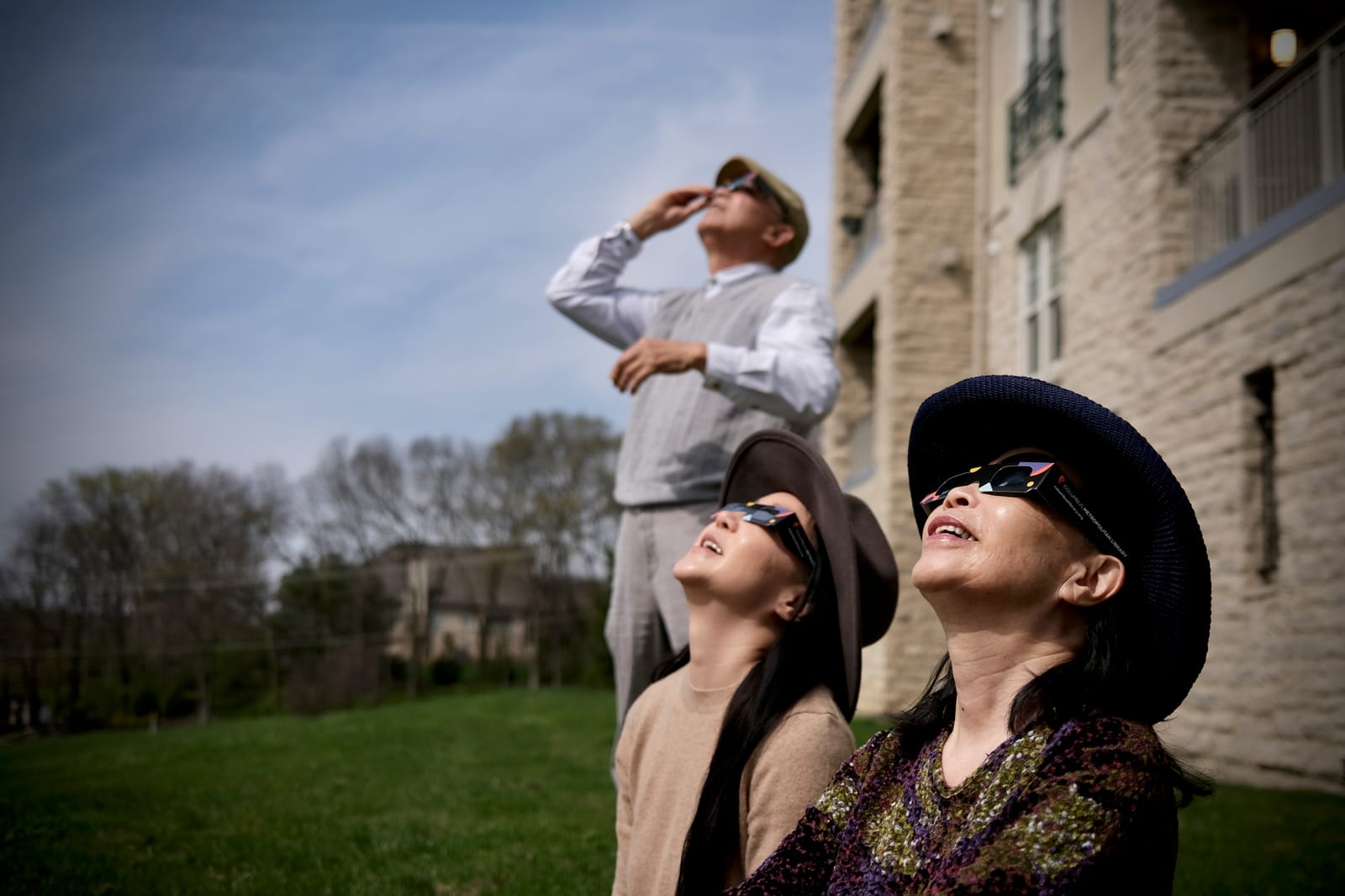The television mumbled in the background, and we followed along as the eclipse passed through Mazatlan, Dallas, Little Rock, and Indianapolis. When our turn came, we stood on a ridge by the river and watched the moon chip away at the sun. A lone helicopter crossed the sky. The temperature dropped. The light turned silvery and dim with crisp strange shadows. Dogs barked. Birds stopped chirping.
Darkness fell quickly from the north, bringing a staggering kind of stillness. For ninety seconds, the eclipse was total, and I stood beneath it feeling a giddy sense of slippage, a perceptual freefall that edged toward the frightening. The television had not prepared me for this.
Although I was grateful for the brief fellowship when everyone across a troubled hemisphere was momentarily joined by the sun and moon, broadcasting their experiences in real-time, I tried to imagine what it must have felt like to encounter such a chaotic sky in ancient times, bewildered and alone. As daylight returned, I understood why the first rituals were performed to ensure the sun would rise each morning, and I wondered what the last ritual might be.





